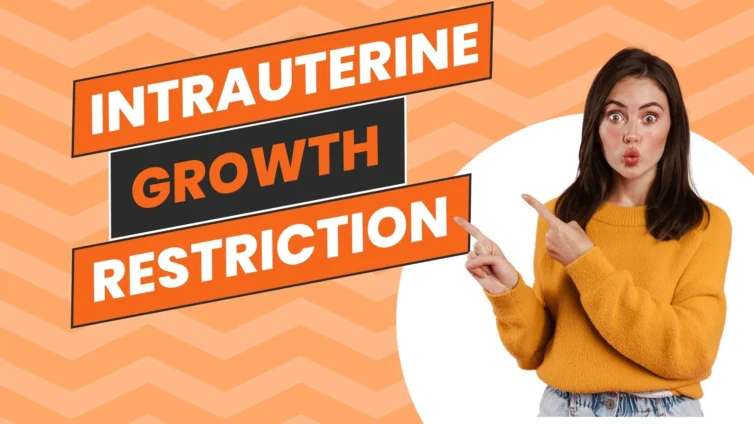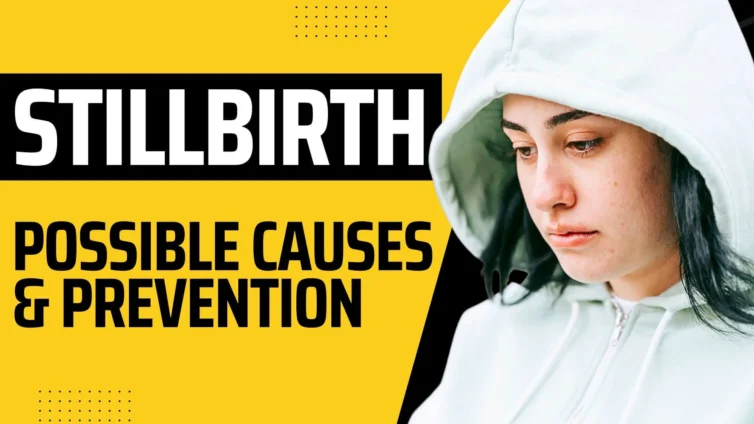
Miscarriage is a word that carries a profound emotional weight, especially for those who have experienced it. It’s a loss that can be deeply personal and often misunderstood. But what happens after a miscarriage? How does one recover physically and emotionally? This article aims to shed light on the recovery process, offering guidance and support to those navigating this challenging journey. Whether you’ve experienced a miscarriage yourself or are supporting someone who has, understanding the path to recovery is essential. From immediate physical care to long-term emotional healing, we’ll explore the steps to take and the resources available to help you in recovering from miscarriage.
Understanding Miscarriage
Miscarriage, or the loss of a pregnancy before 20 weeks, is a common but often misunderstood experience. It’s estimated that about 10% of known pregnancies end in miscarriage, most often in the first trimester. Understanding the importance of recovery, both physically and emotionally, is vital for anyone who has experienced this loss.
Recovery is not just about healing the body but also about addressing the emotional scars that a miscarriage may leave behind. It’s a process that takes time and requires support, empathy, and patience. The journey is unique to each individual, and there’s no right or wrong way to feel or heal.
What Happens After a Miscarriage?
After a miscarriage, a woman may experience a range of physical and emotional symptoms. Physically, the body needs to heal and return to its non-pregnant state. This involves the uterus returning to its normal size, menstrual cycles resuming, and hormone levels stabilizing.
Emotionally, the aftermath of a miscarriage can be complex and challenging. Feelings of grief, guilt, anger, and confusion are common. Some may find solace in understanding the cause of the miscarriage, while others may need time to grieve and find support from friends, family, or professional counselors.
Understanding what happens after a miscarriage is essential for recovery. It helps in setting realistic expectations and allows for the necessary space and time to heal.
Physical Symptoms and Recovery
Physical recovery after a miscarriage involves several stages. Initially, there may be physical symptoms such as cramping, bleeding, and clotting. These symptoms can last from a few days to a few weeks. It’s essential to follow your doctor’s advice during this time and to be aware of any signs of complications, such as excessive bleeding or signs of infection.
Long-term physical recovery includes waiting for the menstrual cycle to return to normal, which usually happens within 4 to 6 weeks. During this time, it’s essential to focus on overall well-being, including proper nutrition, exercise, and rest. Your body has undergone a significant event, and taking care of yourself physically is a crucial part of healing.
Emotional Healing and Support
Emotional healing and support are equally vital in the recovery process. Miscarriage can be a deeply traumatic experience, and it’s normal to feel a wide range of emotions. Some may find comfort in speaking with a friend or family member, while others may benefit from professional counseling or support groups. There’s no right or wrong way to grieve, and finding what works for you is essential.
For those looking for guidance on managing emotions during pregnancy, the emotional changes during pregnancy guide can be a helpful resource. It’s also worth exploring the guide to pregnancy trimesters to understand the different stages of pregnancy and what to expect.
Understanding the Cause of Miscarriage

Common Causes
Miscarriage is often a natural occurrence, and in many cases, the exact cause is unknown. However, some common causes include chromosomal abnormalities, hormonal imbalances, infections, and certain underlying health conditions. It’s essential to note that a miscarriage is not caused by anything you did or didn’t do. It’s a complex event that often remains unexplained.
Understanding the cause can sometimes help in the healing process, but it’s not always possible to pinpoint a specific reason. Speaking with a doctor and undergoing necessary tests can provide insights into the cause, if identifiable.
Recurrent Miscarriage
Recurrent miscarriage, defined as the loss of two or more consecutive pregnancies, affects about 1% of couples trying to conceive. It can be particularly distressing and often leads to a more in-depth investigation to determine any underlying issues. Some potential factors include structural abnormalities in the uterus, autoimmune disorders, or genetic factors.
If you’ve experienced recurrent miscarriages, it’s essential to consult with your doctor. They can conduct a thorough examination and recommend appropriate treatments or interventions.
Physical Recovery After a Miscarriage
Immediate Care and Procedures
Physical recovery after a miscarriage is a gradual process that requires care and attention. It includes monitoring for signs of complications, following medical advice, and allowing the body to heal.
Immediate care may involve medical procedures such as dilation and curettage (D&C) to remove any remaining tissue in the uterus. This may be done under anesthesia and requires some recovery time.
Long-term Physical Health
Long-term physical health involves monitoring menstrual cycles, hormone levels, and overall well-being. It may take several weeks for the body to return to its non-pregnant state, and during this time, it’s essential to focus on self-care and well-being.
For more information on physical recovery and what to expect, you can refer to the guide to pregnancy complications, which provides insights into various pregnancy-related issues.
Emotional Healing After a Miscarriage

Grieving Process
The grieving process after a miscarriage is deeply personal and varies widely from person to person. Some may feel a profound sense of loss and sadness, while others may experience anger, guilt, or relief. There’s no right or wrong way to feel, and it’s essential to allow yourself the space and time to grieve in your own way.
Some find solace in rituals or ceremonies to honor the loss, while others may prefer private reflection. Connecting with others who have experienced a miscarriage, whether through support groups or online forums, can also provide comfort and understanding.
Support Groups and Counseling
Finding support after a miscarriage can make a significant difference in the healing process. Support groups, either in person or online, provide a safe space to share feelings, ask questions, and connect with others who understand the experience.
Professional counseling or therapy can also be beneficial, especially if the grief becomes overwhelming or leads to depression or anxiety. Therapists specializing in pregnancy loss can provide personalized support and coping strategies.
For those looking for additional support and resources, our miscarriage causes, symptoms, and prevention guide offers comprehensive information on understanding and coping with miscarriage.
Emotional healing after a miscarriage is a journey that takes time and patience. By seeking support, allowing yourself to grieve, and finding ways to honor your experience, you can move forward with strength and resilience.
Getting Pregnant Again After a Miscarriage
When to Try Again
The decision to try to get pregnant again after a miscarriage is a deeply personal one. Some couples may feel ready to try again right away, while others may need more time to heal physically and emotionally. Doctors usually recommend waiting until after your next menstrual cycle to allow your body to recover fully. However, the best time to try again will depend on how far along the pregnancy was, the cause of the miscarriage, and your overall health.
If you’re considering trying again, it’s essential to consult with your doctor to understand any potential risks and to ensure that your body is ready for another pregnancy. You may also want to explore the our ultimate guide to pregnancy to understand the what to expect during pregnancy.
Preparing for Future Pregnancies
Preparing for future pregnancies after a miscarriage involves both physical and emotional readiness. Physically, it means taking care of your body by eating a balanced diet, exercising regularly, and following any medical advice or treatments recommended for a healthy and safe pregnancy by your doctor. Emotionally, it may involve dealing with lingering fears or anxieties about another miscarriage.
Building a support system, whether through friends, family, or professional counseling, can be incredibly helpful in preparing for future pregnancies. Understanding that every pregnancy is unique and that a previous miscarriage does not necessarily mean you will experience another one can also provide reassurance.
Key Takeaways:
Key Takeaways
1. Understanding Miscarriage: Knowledge about what a miscarriage is and the importance of physical and emotional recovery is essential.
2. Emotional Healing: Support groups, counseling, and personal reflection can aid in emotional healing after a miscarriage.
3. Getting Pregnant Again: Consultation with a doctor and proper preparation are vital for future pregnancies after a miscarriage.
4. Miscarriage Support and Resources: Various resources, including support groups and educational materials, can provide assistance and information.
The Bottom Line
Recovering from a miscarriage is a deeply personal and often complex process that involves both physical healing and emotional recovery. The journey may be filled with grief, confusion, and fear, but with the right support and understanding, healing is possible. Whether you’re considering trying to get pregnant again or seeking support to cope with the loss, the resources and insights provided in this guide can be a valuable companion.
Remember, every person’s experience with miscarriage is unique. It’s essential to consult with your doctor, lean on your support system, and take the time you need to heal. There’s no right or wrong way to grieve or move forward, but with patience, compassion, and knowledge, you can find your path to recovery and hope for the future.
FAQs about Recovering From Miscarriage
What happens after a miscarriage?
After a miscarriage, physical symptoms like cramping and bleeding may occur. Emotional healing is also essential, and support groups or counseling can help
How can I recover from a miscarriage physically and emotionally?
Physical recovery after a miscarriage may include rest and medical care, while emotional healing may involve support from friends, family, or professional counseling.
When can I try to get pregnant again after a miscarriage?
It’s best to consult with your doctor about when to try to get pregnant again after a miscarriage, as it may vary from woman to woman.
What are the common causes of miscarriage?
The cause of miscarriage can vary, but common factors include chromosomal abnormalities, age, and underlying health conditions.
How can I find miscarriage support?
Miscarriage support can be found through local support groups, online forums, or professional counseling tailored to pregnancy loss.
How long does physical recovery after a miscarriage take?
Physical recovery after a miscarriage can take anywhere from a few weeks to a month, depending on individual circumstances.
Can I have a healthy pregnancy after experiencing a miscarriage?
Yes, many women have a healthy pregnancy after a miscarriage. Consultation with a doctor and proper preparation can support future pregnancies.





